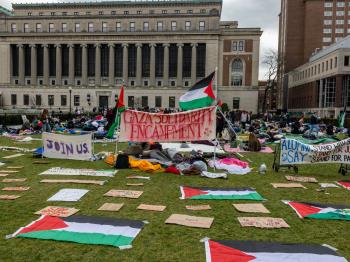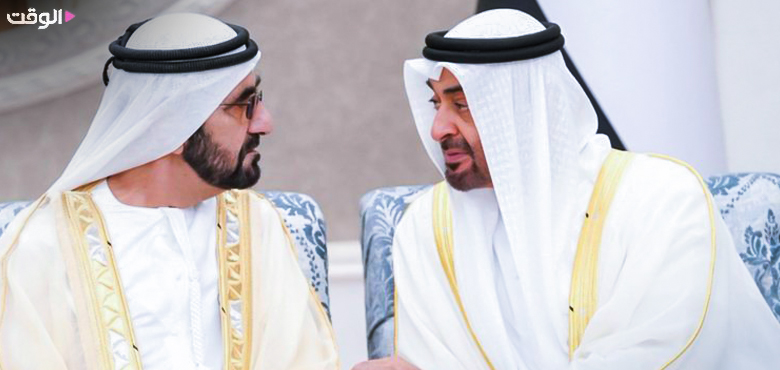Alwaght- After a period of intense competition among regional powers in West Asia and North Africa, things seem to be moving to calm and de-escalation, where diplomacy finds chance to show up and play a role. Meanwhile, in a move apparently motivated by the new regional conditions, the UAE said it plans to engage in efforts to improve relations with Iran.
Anwar Gargash, the diplomatic advisor to the UAE president, told the Abu Dhabi Strategic Debate that the Emirates is taking steps to defuse tensions with Iran as part of a policy choice towards diplomacy and away from confrontation. Following the comments, the Reuters news agency reported that a senior Emirati official is planned to visit Tehran to advance the plan and hear the stances of the Iranian side to pave the way for dialogue in the future. Media outlets then said that the official to visit Iran is the national security adviser.
On the other hand, Emirati media outlets recently reported a phone conversation between the Iranian Foreign Minister Hussein Amir-Abdollahian and his Emirati counterpart Abdullah bin Zayed Al Nahyan.
Why is UAE for de-escalation now?
The first and perhaps most influential factor in the future of Iran's relations not only with the UAE but also with the (Persian) Gulf Cooperation Council is the possible withdrawal of US troops, or to be precise, the expulsion of the Americans from the region. For decades, the US has defined its military presence in the Persian Gulf Arab states as a protection to their security. In defining the common interests with these states it drew various levels of military, political, and security cooperation.
Meanwhile, with withdrawal of the US forces from the region, which comes under the excuse of pivot to East and confrontation of China and unintentionally reveals the defeat in the face of the Iran-led Axis of Resistance, the security riddle in the Persian Gulf compounds the Arab feeling of weakness in the face of the Iranian regional power. Although the role of political and geopolitical, and somehow border, disputes is undeniable in this feeling of threat, the more important factor is the absence of common security mechanisms, like collective security treaty that Iran has called for repeatedly, and also lack of independence in foreign policy and blind following of the Arab countries like UAE of largely divisive and destructive US policies in the region.
The consequences of the tendency to normalize with Tel Aviv to create a security shield under the longtime US strategy of building anti-Iranian regional alliances is another reason for the UAE to repair ties with Tehran. Essentially, in addition to opposition to normalization with Tel Aviv as a blow to the Islamic unity and a betrayal of the Palestinian cause and interests, Iran views the Emirati hosting of the Israeli presence in the Persian Gulf a insidious threat to its national security. In a couple of incidents in the Emirati waters the Israeli hands were obvious, accentuating the fact that they also pose risks to the UAE security and interests. In such situation, the UAE considers the mended ties with Iran a way to push back against threats.
From another angle, Yemen war and a costly six-year military campaign give the Emirates another reason to repair frayed political ties with the Islamic Republic, to not fall behind Saudi Arabia that is already engaged in reconciliation talks with Iran. Although the goals of the UAE and Saudi Arabia in the war in Yemen are falling far apart, and Abu Dhabi has entrusted a significant part of its plans to its proxy forces in southern Yemen, mainly the Southern Transitional Council (STC), concerns about security challenges and the future of Sana'a's relations with the STC are issues on which the Emiratis want to talk to the Iranians.
De-escalation outlook amid ifs and buts
Show of interest to normalize ties with Iran is an important progress but Abu needs to do more to lay the groundwork for dialogue and warmer ties with Tehran.
Expanded economic cooperation works like a bridge to diplomacy to scale down differences. It is noteworthy that although they are at loggerheads over a set of regional cases, Iran and the UAE remain two major trade partners.
The shift of attitude of the Persian Gulf Arab monarchies towards Iran's regional allies like Syria and Iraqi Shiites is welcomed by Iran, though Tehran knows the change is interventionist and aimed at impacting the Iranian ties with these two countries. Over the past decade, the petrodollars of the Persian Gulf monarchies fueled devastating terrorist wars in Iraq and Syria. The UAE needs to revise this policy.
But more important issue is Iran's opposition to Arab normalization with Tel Aviv as an unbending red line. Whether Mohammed bin Zayed as the key UAE policy maker plays in the Israeli regime's game that is dangerous and divisive to the Persian Gulf security and Arab-Iranian neighborly ties or perceives such a danger and acts responsibly tests Abu Dhabi seriousness about de-escalation.



























